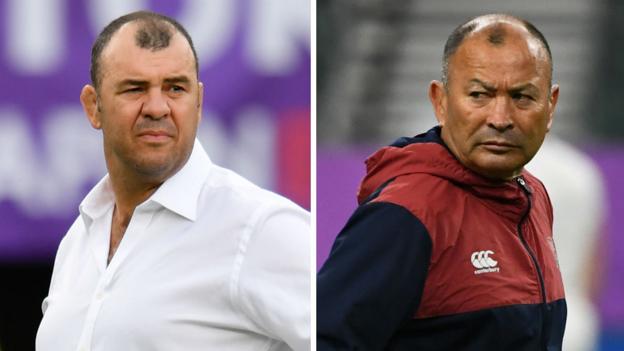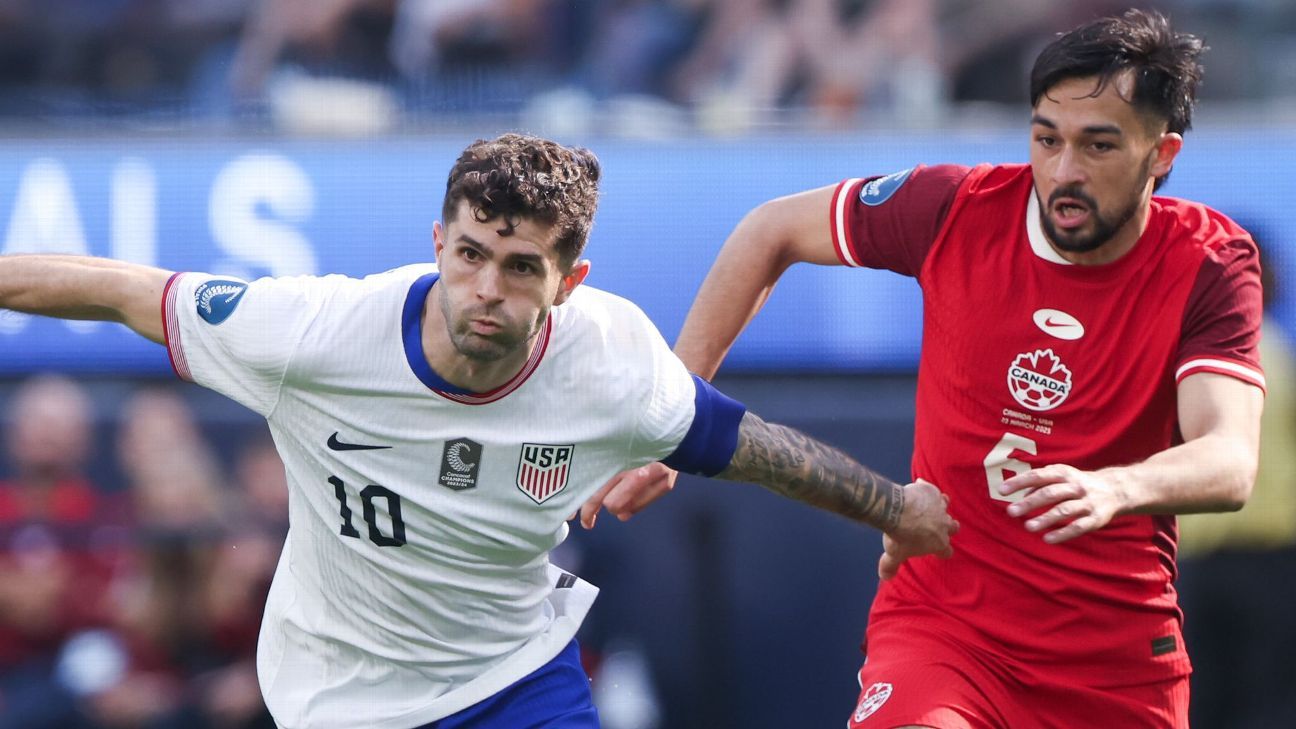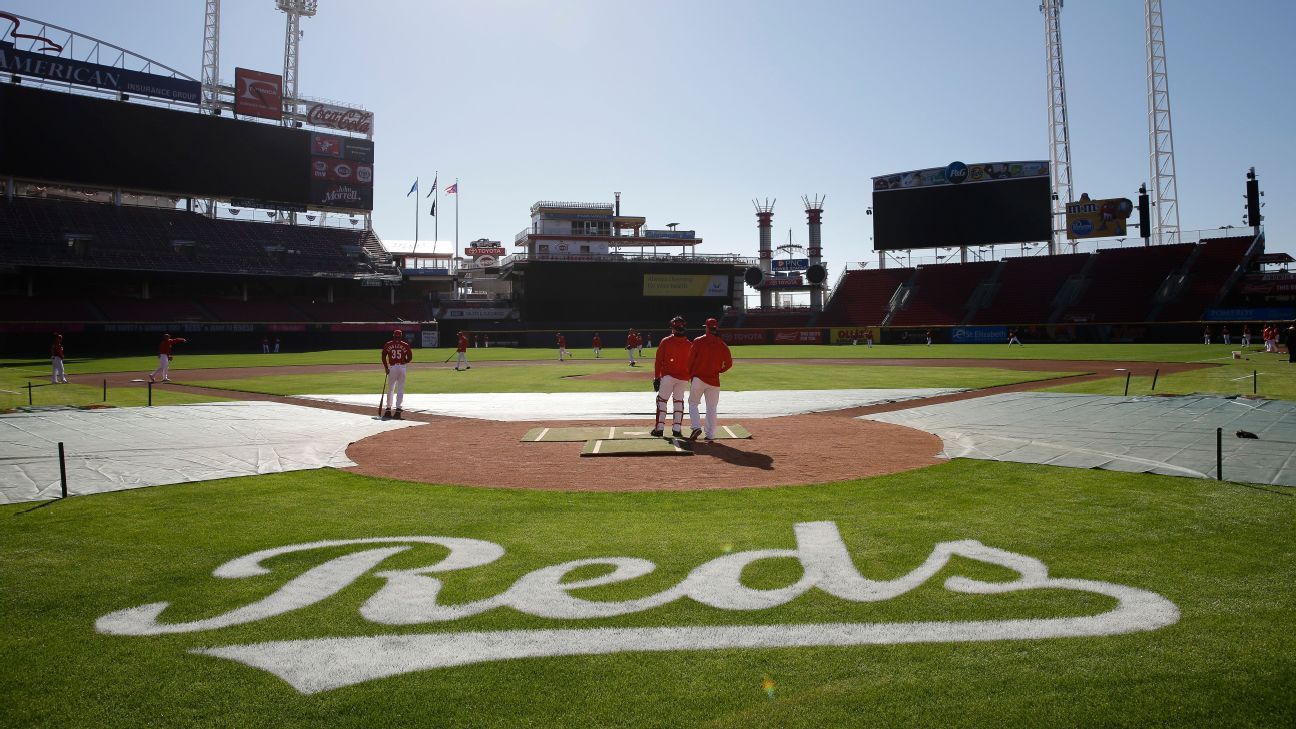
Eddie Jones changes in the week when his England side plays his native Australia: more animated, more caustic, up earlier and to bed later even by his own workaholic standards.
Now that game falls in the quarter-finals of a World Cup, with his reputation as England coach likely to be defined by what happens in the Oita Stadium on Saturday and what may follow, all that has been ramped up further still.
There is the coaching rivalry: Jones, the former Randwick hooker, up against Michael Cheika, former Randwick number eight. There is what a win would mean: a World Cup semi-final, maybe more. There is what defeat might bring: the end of a regime, a censorious reappraisal of all it was built on.
Both coaches have surprised with their team selections - Jones by dropping George Ford and George Kruis, Cheika by changing his half-back pairing again and giving a 19-year-old a first run at centre for the Wallabies.
Neither man is likely to have been bothered in the least by the reaction that has followed in some quarters. They share a home town and club, but also a deep-rooted desire to prove the rest of the world wrong.
"You can't just make a flippant remark with Eddie," says Stirling Mortlock, the former Wallabies skipper who played under Jones for franchise and country.
"If you're going to say something, you need to have some stats behind it and you need to have some conviction. Otherwise he'll call you out straight away - 'mate, that's wrong; bang, bang, bang'.
"I don't know if I was scared of Eddie, but certainly after being coached by him for a long period of time, you understand that what he wants is everyone to try to get better, day in, day out. And if you're not doing that, that's a problem straight away.
"If you're doing that, then he's still going to say, let's work on your rugby intellect, or let's do other things off the field. He constantly wants to see people pushing themselves.
"He's always looking at the global dynamic of where the game is going. He'll rip that up with stats, he'll debunk any other opinion until he's clear on where he wants to go and what sort of people he needs to develop that."
Jones' starting XV is everything he has always wanted England to be: big, strong, packed with powerful ball-carriers, based around a rock-solid set-piece.
Ford, arguably England's best player in their three group-stage wins, is gone, sent to the bench as Owen Farrell is shifted from inside centre to 10. Everywhere you look is muscle, energy and snarl.
Australia used to prefer contrasting methods. Four years ago their march to the World Cup final was based on the guile and quick-thinking of Bernard Foley and Matt Giteau. This time Cheika has followed the Jones way: a scrum and line-out that is a weapon rather than weakness, 17 stone of Samu Kerevi at centre, 6ft 3ins of Jordan Petaia next to him.
"As a player 'Cheik' absolutely did all his talking out on the field," says Mortlock. "He was incredibly combative, almost a thug on the pitch.
"One of my first games was against Randwick, him and his brothers. And you didn't really want to go near the Cheika brothers.
"I was a young full-back with a full head of hair, and off a midfield scrum-play I stepped back into Cheik and got a nice broken nose for my troubles.
"I feel as if as a coach and leader, he can't help but default to that real passionate character.
"He can't bash people any more, he can't get up that physical head of steam. So it's really tough for him. He wants to let out a few expletives, but he can't so he has to keep it all in tight.
"What he's very good at is getting players to respect him, immensely, and to trust him, and to believe in him.
"I've got no doubt in my mind that players love to play for Cheik, because they feel like if they're going to lose, they'll be disappointed they've let their coach down. And that's a good place to start.
"He always challenges the status quo. He's very good at saying, 'why are we on this side of the changing room, and why do we do things this way?' If there isn't a good reason he'll challenge it and change it.
"That's the mentality he's brought to this Australian team - significantly changing their game only three months out from a World Cup.
"Most people would be thinking, 'my goodness, why would you do that?' He's probably thinking, 'why did we wait so long?'"
Jones would rail against the idea that he's feeling under any pressure out here, or certainly any pressure that he's not relishing.
But there have been signs all the same - an irritability at times in his dealings with some parts of the media, public tears, albeit it blinked away, when talking about his hopes for the team at the start or the recent death of his former Randwick coach and mentor Jeff Sayle.
Win on Saturday with the authority that the same team achieved in the victory over Ireland in Dublin in February, march on towards a probable semi-final meeting with the All Blacks with a team that is fit and firing, and he will feel as if the world is bending to his will once again.
Fall short, having put such a premium on the World Cup throughout his four uneven years in charge, and some of the old critiques will emerge again: that his obsession with detail wears out his backroom staff and players, that his force of personality intimidates some others in the team, that such conviction from one so vocal crowds out the creativity elsewhere.
"You can't always have great form, and so Eddie is going to push you," says Mortlock.
"That happened to me - in about 2005, I had an average year. I agreed with him that I had an average year, but I also stood up for myself and said, 'it's my job to do the hard work off the pitch so I can prove to you that I'm ready to go again'.
"And as soon as I did that, it was almost like he was slapping me on the back and joking with me and everything else.
"He's got an absolute gentle heart when it comes to rugby. He's a pig in mud if he's doing a coaching clinic with other coaches or a load of six-year-old kids. He absolutely loves this game of ours."
Jones has always backed himself. Now England are about to find out if he's right.















 Phone: (800) 737. 6040
Phone: (800) 737. 6040 Fax: (800) 825 5558
Fax: (800) 825 5558 Website:
Website:  Email:
Email: 






